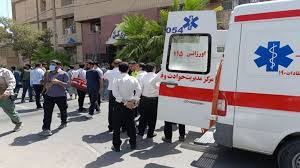RASC News Agency: Pakistan’s abrupt suspension of visa extensions for Afghanistani refugees now in effect for more than twenty days has thrown thousands into immediate legal limbo and turbo‑charged police raids in Islamabad and Rawalpindi. Local sources report that on Saturday,July 26, police units swept through neighborhoods including Sector B‑17 in Rawalpindi and several districts of Islamabad, detaining women, children, the sick, and other refugees whose visas have lapsed. With no timetable or explanation for resuming the extension process, refugees are being stripped overnight of their legal status and exposed to arrest, detention, and deportation. This policy shift hits the most vulnerable first: activists, journalists, former government employees, minority communities, and women who fled the Taliban’s gender apartheid and systemic repression. Many are mid‑process for resettlement to third countries Germany, Canada, the United States yet stalled by tightening immigration rules, sluggish vetting, and bureaucratic backlogs in the West. By freezing visa renewals, Islamabad has effectively criminalized those awaiting lawful relocation, inviting arbitrary enforcement and enabling collective punishment of people who fled a regime that criminalizes their very existence.
Under international law most notably the principle of non‑refoulement, embedded in customary international law and core human‑rights treaties no state may return individuals to a country where they face a credible risk of persecution, torture, or other irreparable harm. Afghanistan under Taliban rule indisputably meets that threshold: women are erased from public life; dissent is met with detention, torture, and public flogging; minorities are coerced, extorted, or forced to convert; journalists and former soldiers are surveilled, disappeared, or worse. Forcing Afghanistani refugees back is not merely a policy failure; it is complicity in foreseeable abuse. Pakistan’s calculus is driven by domestic political pressures, economic strain, and fraught relations with the Talibanvbut exporting the cost of that instability onto refugees neither solves those problems nor meets basic human-rights obligations. Meanwhile, the Taliban profit politically: every coerced return increases their capacity to intimidate, recruit, ransom, or silence those who once escaped their reach. Unless immediately corrected, the policy risks metastasizing into a full-blown protection crisis:
Families in legal limbo are pushed underground, cut off from health care, work, and education. Women and high-risk activists face forced return to a regime that has made persecution its governing doctrine. Resettlement pipelines clog further, as fear drives refugees into hiding just when they need to be reachable by international agencies. The Taliban’s leverage grows, as deportees become hostages to a state that rules by coercion, not consent. A minimally responsible course of action demands:
An immediate moratorium on arrests and deportations of Afghanistani refugees and asylum seekers, especially those with pending third‑country resettlement files. Automatic, time‑bound visa extensions or temporary protection status, to prevent mass illegality caused by state paralysis. Rapid, case-by-case risk assessments led or verified by UNHCR and independent protection actors, not by political or security agencies alone. Fast‑tracked humanitarian corridors and evacuation schemes for women at risk, human-rights defenders, journalists, former security personnel, and minorities.
Coordinated Western burden-sharing accelerated processing, emergency quotas, and financial support to host countries conditioned on non‑refoulement compliance.
Robust monitoring and legal aid so refugees can challenge unlawful detention or deportation and access due process.
For Afghanistani refugees, the danger is immediate and binary: detention in Pakistan or persecution under the Taliban. For Pakistan, the choice is between a rule‑of‑law approach aligned with international norms or a securitized crackdown that will deepen humanitarian chaos, damage its international standing, and hand the Taliban new tools of intimidation. And for Western governments, the question is whether rhetoric about protecting Afghanistani lives will finally be matched with speed, numbers, and concrete pathways to safety.
The Taliban created the conditions that drove these people out. Pakistan’s freeze traps them at the gates. Without urgent, coordinated intervention, the border will become a conveyor belt moving the persecuted straight back into the grip of their persecutors.






